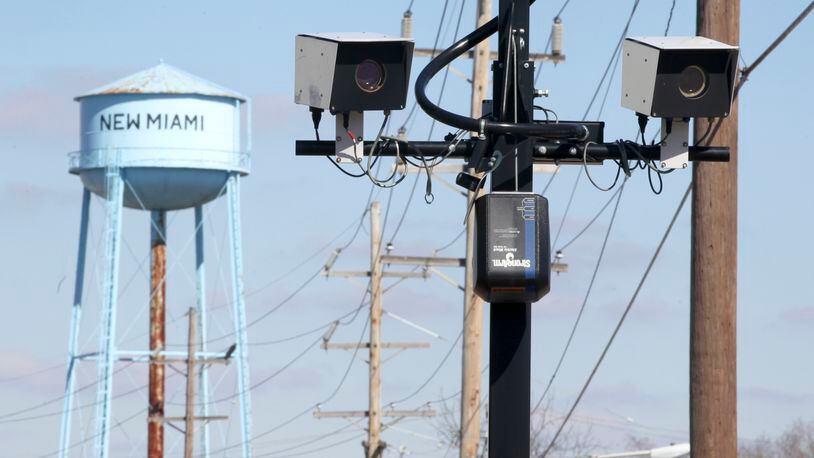The village contracted with Optotraffic to run the previous speed camera program and for that service the Maryland traffic camera people were paid $1.2 million or 40 percent of the total fine collection amount of $3 million.
Now, the speeders’ attorneys have asked a judge to award them the full amount.
“We’re entitled to all the money they collected under this scheme,” attorney Josh Engel said. “The fact that they paid some of this money out to Optotraffic, that’s their cost of doing business and that’s not our problem.”
MORE: New Miami rolls out hand-held speed cameras
New Miami’s attorney James Englert, who doesn’t think the speeders have a case, said he doesn’t believe the judge should hold New Miami responsible for fines they never received.
“The value the village is enriched by is $1.8 million — we don’t have the other amount,” he said. “And I don’t think it would be right for the court to hold the village for that other amount. They could have sued Optotraffic for that other amount.”
Engel said they have no intention of suing the former vendor, but New Miami could if they want to recoup the money. Engel said he is also unconcerned about the fact that the village might not have the money to refund the $95 speeding ticket fines to his clients.
He and his partners on the case tried to garnish collections from the new speeding program — as of June 30 the village has collected $162,056 — with no success. But he said since Englert told the judge recently the village has $1.2 million in unencumbered funds and they have the new speed camera revenue stream, the judgment, could be paid.
“They can’t really claim poverty in this thing,” he said. “They can come up with the money.”
A judge previously ruled the administrative hearing process New Miami employed did not offer speeders due process rights. The case has twice gone to the 12th District Court of Appeals. The Ohio Supreme Court has declined to take over the case.
Englert said they will be taking the case back to the high court.
“Their theory of liability under which they are proceeding, the claim of lack of due process, we’ll certainly be taking that to supreme court,” he said. “So there are a lot of steps along the way before the plaintiffs can recover in this. We feel confident that we did not deprive the motorists of due process. They received very fair administrative hearings.”
RELATED: Most who appear at speed camera hearings have fines dropped
About the Author
